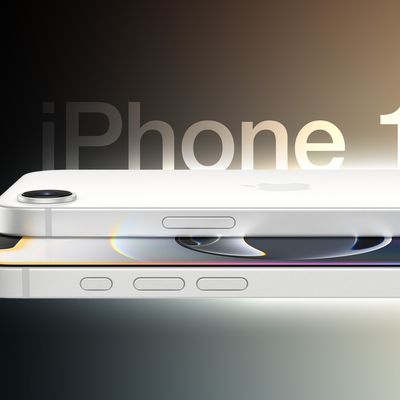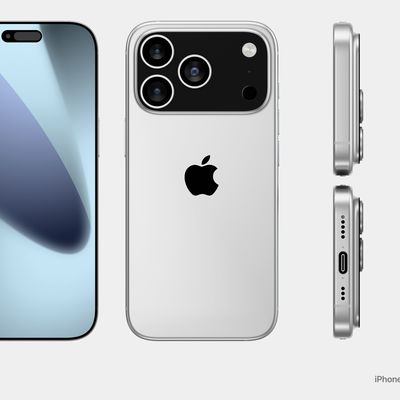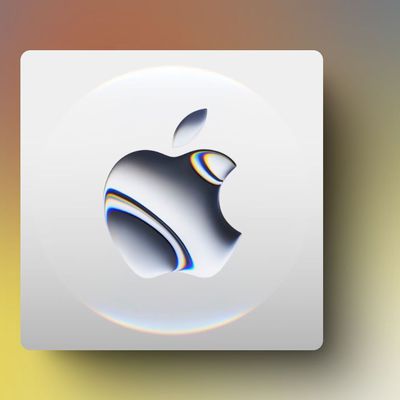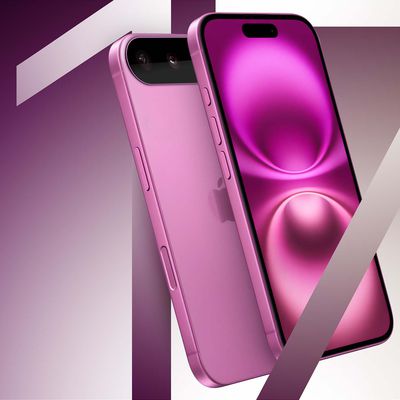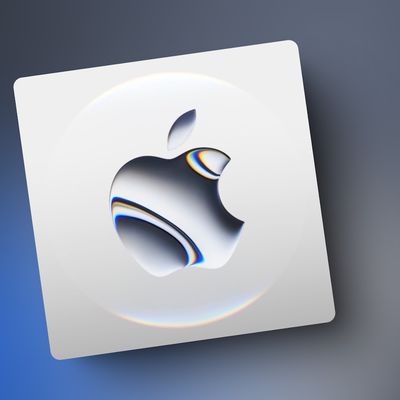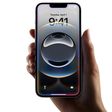Apple Acquires Speech Technology Startup VocalIQ
Apple has purchased VocalIQ, a startup located in the United Kingdom that has developed a natural language API to allow computers and people to have a more natural dialogue, reports Financial Times. According to VocalIQ's website, the company has developed a self-learning dialogue API built on 10 years of natural language research, belief tracking, decision making, and message generation.
It's not always clear how Apple uses the technology from companies that it purchases, but with this acquisition, it's likely Apple will use the API to improve its voice-based personal assistant, Siri. Financial Times also believes Apple could use the technology for its upcoming car project, as VocalIQ specialized in in-car applications among other things.

While VocalIQ's speech processing and machine learning technology could be incorporated into devices from wearables to the connected home, the company was particularly focused on in-car applications. This included a collaboration with General Motors.
In a blog earlier this year, VocalIQ described how a "conversational voice-dialog system" in a car's navigation system could prevent drivers from becoming distracted by looking at screens. Its "self- learning" technology allows "real conversation between human and the internet of things", VocalIQ wrote.
VocalIQ has criticized Siri in a past blog post, calling the virtual assistant a "toy" unable to understand context. The difference between VocalIQ's system and traditional speech-recognition services like Siri and Cortana is its ability to learn.
The reason for this state of affairs is that while Apple, Google and the some others have mastered how the use machine learning for speech-recognition, they are still stuck with medieval approach when it comes of conversational voice dialog. They are still using pre-programmed flow-chart based response that don't learn.
The consumer demand for a self-learning multi-domain conversational voice system where consumers can freely talk about movies, restaurants, music, hotel bookings and the meaning of life, is huge and undeniable. The first one to meet that demand will rule the smartphone and wearables market for the next decade.
Apple confirmed its purchase of VocalIQ with its usual statement: "Apple buys smaller technology companies from time to time, and we generally do not discuss our purpose or plans."
Popular Stories
Apple today introduced the iPhone 16e, its newest entry-level smartphone. The device succeeds the third-generation iPhone SE, which has now been discontinued.
The iPhone 16e features a larger 6.1-inch OLED display, up from a 4.7-inch LCD on the iPhone SE. The display has a notch for Face ID, and this means that Apple no longer sells any iPhones with a Touch ID fingerprint button, marking the ...
Over the years, Apple has switched from an aluminum frame to a stainless steel frame to a titanium frame for its highest-end iPhones. And now, it has been rumored that Apple will go back to using aluminum for three out of four iPhone 17 models.
In an investor note with research firm GF Securities, obtained by MacRumors this week, Apple supply chain analyst Jeff Pu said the iPhone 17, iPhone...
Now that Apple has announced its new more affordable iPhone 16e, our thoughts turn to what else we are expecting from the company this spring.
There are three product categories that we are definitely expecting to get upgraded before spring has ended. Keep reading to learn what they are. If we're lucky, Apple might make a surprise announcement about a completely new product category.
M4...
Apple is set to "significantly change" the iPhone's design language later this year, according to a Weibo leaker.
In a new post, the user known "Digital Chat Station" said that the iPhone's design is "starting to change significantly" this year. The "iPhone 17 Air" reportedly features a "horizontal, bar-shaped" design on the rear, likely referring to an elongated camera bump. On the other...
Wednesday February 19, 2025 11:38 am PST by
Juli CloverFollowing the launch of the iPhone 16e, Apple updated its iOS 18, iPadOS 18, and macOS Sequoia pages to give a narrower timeline on when the next updates are set to launch.
All three pages now state that new Apple Intelligence features and languages will launch in early April, an update from the more broader April timeframe that Apple provided before. The next major point updates will be iOS ...
In a social media post today, Apple CEO Tim Cook teased an upcoming "launch" of some kind scheduled for Wednesday, February 19.
"Get ready to meet the newest member of the family," he said, with an #AppleLaunch hashtag.
The post includes a short video with an animated Apple logo inside a circle.
Cook did not provide an exact time for the launch, or share any other specific details, so...
The first iOS 18.4 beta for iPhones should be just around the corner, and the update is expected to include many new features and changes.
Bloomberg's Mark Gurman expects the iOS 18.4 beta to be released by next week.
Below, we outline what to expect from iOS 18.4 so far.
Apple Intelligence for Siri
Siri is expected to get several enhancements powered by Apple Intelligence on iOS...
Apple released the HomePod mini in November 2020, followed by the AirTag in May 2021, and both still remain first-generation products.
Fortunately, rumors suggest that both the HomePod mini and the AirTag will finally be updated at some point this year.
Below, we recap rumors about the HomePod mini 2 and AirTag 2.
HomePod mini 2
In January 2025, Bloomberg's Mark Gurman said Apple is ...



